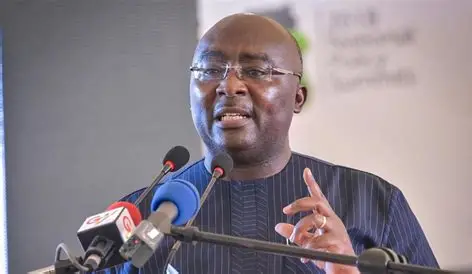– Nana Asare Baffour
A recent statement attributed to Gabby Otchere-Darko has sparked considerable debate within Ghana’s political space. Gabby suggested that Dr. Mahamudu Bawumia’s apology to Ghanaians for some of the shortcomings of the current administration was a political error, a case of “knocking himself down” instead of demonstrating humility. According to him, such an apology could delay the New Patriotic Party’s return to power beyond 2028.
However, this perspective, though politically tactical, reflects an outdated view of leadership and public accountability.
True leadership is not about appearing infallible; it is about acknowledging mistakes, learning from them, and committing to do better. Throughout history, the greatest leaders from Nelson Mandela to Barack Obama have shown that humility strengthens authority, not diminishing it. When a leader apologizes sincerely, they elevate the moral tone of governance and reaffirm their respect for the people they serve.
Dr. Bawumia’s apology was, therefore, not an act of weakness but one of courage and maturity. It demonstrated his understanding that leadership demands reflection, honesty, and responsibility. In a democratic society, acknowledging faults is not self-destruction; it is the foundation for rebuilding public trust.
Gabby’s argument, while politically cautious, risks reinforcing a culture where leaders are too proud to admit failure, a mindset that has often deepened public distrust in politics. The Ghanaian electorate today values sincerity over spin and humility over hubris. The era of pretending that everything is perfect is gone; Ghanaians now want leaders who are authentic, empathetic, and accountable.
Juxtaposing the two positions reveals a telling contrast:
Dr. Bawumia’s apology reflects transformational leadership, a readiness to learn, and reform for the benefit of the nation.
Gabby’s critique represents transactional politics, a fixation on image rather than integrity.
In an age where citizens are better informed and more discerning, authenticity commands greater respect than perfection. Dr. Bawumia’s willingness to say “we got some things wrong” positions him as a leader who listens, cares, and seeks to correct past mistakes a quality that resonates with a new generation of voters yearning for honesty in politics.
Ultimately, a leader who apologizes does not knock himself down he lifts the nation up.
Dr. Bawumia’s apology was not a political miscalculation. It was a moral masterstroke that reaffirmed the true essence of servant leadership.



